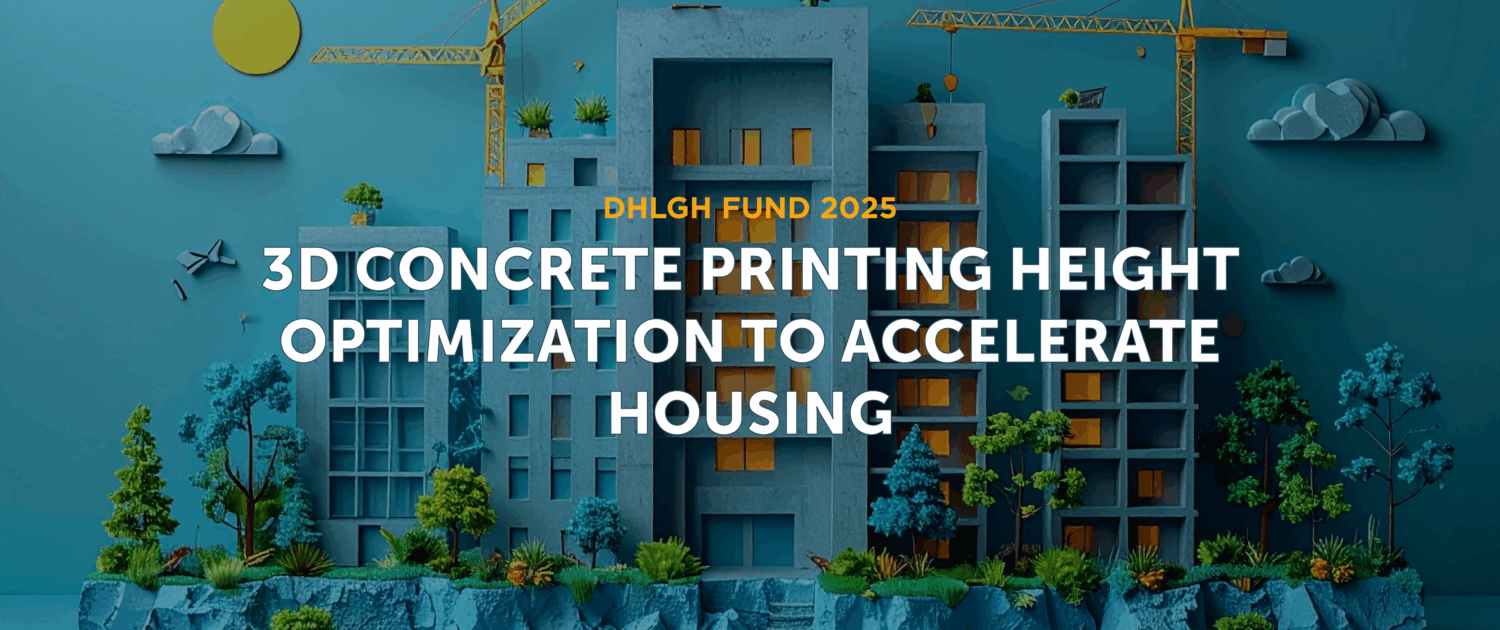3D Concrete Printing Height Optimization to Accelerate Housing
This project supports Ireland’s Housing for All strategy by testing a breakthrough in automated housing construction using 3D concrete printing (3DCP). Current 3DCP systems typically print concrete in layers that are 50mm high, which limits how quickly walls can be built. This project proposes increasing the layer height to 75mm, which will decrease the number of printing passes by 33% without compromising strength or stability. To achieve this, researchers at University College Dublin will work with industry partner HTL to develop and test new concrete mixes that can support taller layers. Using a concrete rheometer, the team will measure and adjust key material properties such as flow behaviour and setting time to ensure the concrete is strong, stable, and printable at high speed. The best-performing mix will be trialled in a live environment using HTL’s COBOD BOD2 3D printer at a Roadstone production site. By reducing the number of layers required, saving time, and cutting labour needs, this project aims to make 3D printing a faster and more affordable way to deliver homes. The results will be shared openly to benefit the wider construction industry and help scale up the use of digital tools in building Ireland’s future housing.
Collaborators:
Harcourt Technologies Ltd (HTL)
Collaborators
Principal Investigator

Dr. Ciaran McNally
Associate Professor at University College Dublin
Dr Ciaran McNally is a civil engineer and obtained his PhD in 2001 for his work on alkali aggregate reaction in Irish concretes. Subsequent to that he joined the Centre for Materials and Manufacturing in UCD, where he worked as a research engineer, covering materials research, product development, process certification and technology transfer to industry. He is currently a lecturer in the School of Civil Engineering and in 2015 obtained a Professional Diploma in Teaching and Learning. To date Dr McNally has won over 2 million Euro in research funding. He has coordinated both European and national projects, including the 3.2 million Euro Marie Curie Initial Training Network TEAM (grant no 238648). His research covers a wide array of materials, including concrete, asphalt and FRP. In recent years he has extended this to include digital design and optimisation. To date, he has published over 100 peer reviewed papers.

Dr. Mehran Khan
Assistant Professor at University College Dublin
Dr. Mehran Khan is currently an Assistant Professor at University College Dublin, Ireland. His research focuses on sustainable construction materials, including 3D-printed concrete, low-carbon concrete, fiber reinforced concrete and its mechanical performance, fracture characteristics, durability, fire resistance, cracking behavior, and compressive modeling of hybrid fiber-reinforced concrete. He serves as Principal Investigator (PI) on multiple academic and industry projects related to sustainable construction. He holds various editorial roles, including Associate Editor, Guest Editor, and Editorial Board Member of several SCI journals. Additionally, he has participated in international conferences as a Speaker and Technical Committee Member.






